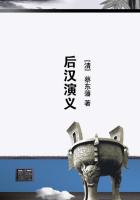In order to complete this critique of bourgeois economics, an acquaintance with the capitalist form of production, exchange and distribution did not suffice. The forms which had preceded it or those which still exist alongside it in less developed countries, had also, at least in their main features, to be examined and compared. Such an investigation and comparison has up to the present been undertaken, in general outline, only by Marx, and we therefore owe almost exclusively to his researches [65] all that has so far been established concerning pre-bourgeois theoretical economics.
Although it first took shape in the minds of a few men of genius towards the end of the seventeenth century, political economy in the narrower sense, in its positive formulation by the physiocrats and Adam Smith, is nevertheless essentially a child of the eighteenth century, and ranks with the achievements of the contemporary great French philosophers of the Enlightenment, sharing with them all the merits and demerits of that period. What we have said of the philosophers a is also true of the economists of that time.
To them, the new science was not the expression of the conditions and requirements of their epoch, but the expression of eternal reason; the laws of production and exchange discovered by this science were not laws of a historically determined form of those activities, but eternal laws of nature; they were deduced from the nature of man. But this man, when examined more closely, proved to be the average burgher of that epoch, on the way to becoming a bourgeois, and his nature consisted in manufacturing and trading in accordance with the historically determined conditions of that period.
Now that we have acquired sufficient knowledge of our "layer of critical foundations", Herr Dühring, and his method in the philosophical field, it will not be difficult for us to foretell the way in which he will handle political economy. In philosophy, in so far as his writings were not simply drivel (as in his philosophy of nature), his mode of outlook was a distortion of that of the eighteenth century. It was not a question of historical laws of development, but of laws of nature, eternal truths.
Social relations such as morality and law were determined, not by the actual historical conditions of the age, but by the famous two men, one of whom either oppresses the other or does not -- though the latter alternative, sad to say, has never yet come to pass. We are therefore hardly likely to go astray if we conclude that Herr Dühring will trace political economy also back to final and ultimate truths {D. Ph. 2}, eternal natural laws, and the most empty and barren tautological axioms; that nevertheless he will smuggle in again by the backdoor the whole positive content of political economy, so far as this is known to him; and that he will not evolve distribution, as a social phenomenon, out of production and exchange, but will hand it over to his famous two men for final solution. And as all these are tricks with which we are already familiar, our treatment of this question can be all the shorter.
In fact, already on page 2, [66] Herr Dühring tells us that his economics links up with what has been "established" in his Philosophie , and "in certain essential points depends on truths of a higher order which have already been consummated [ausgemacht] in a higher field of investigation" {D. C. 2}.
Everywhere the same importunate eulogy of himself; everywhere Herr Dühring is triumphant over what Herr Dühring has established and put out [ ausgemacht ].
Put out, yes, we have seen it to surfeit -- but put out in the way that people put out a sputtering candle. [In German an untranslatable play on words: ausmachen means consummate and also put out. -- Ed. ]
Immediately afterwards we find "the most general natural laws governing all economy" {4} --so our forecast was right.
But these natural laws permit of a correct understanding of past history only if they are "investigated in that more precise determination which their results have experienced through the political forms of subjection and grouping. Institutions such as slavery and wage bondage, along with which is associated their twin-brother, property based on force, must be regarded as social-economic constitutional forms of a purely political nature, and have hitherto constituted the frame within which the consequences of the natural economic laws could alone manifest themselves" {4-5}.
This sentence is the fanfare which, like a leitmotif in Wagner's operas, announces the approach of the famous two men. But it is more than this: it is the basic theme of Herr Dühring's whole book. In the sphere of law, Herr Dühring could not offer us anything except a bad translation of Rousseau's theory of equality into the language of socialism, such as one has long been able to hear much more effectively rendered in any workers'
tavern in Paris. Now he gives us an equally bad socialist translation of the economists' laments over the distortion of the eternal natural economic laws and of their effects owing to the intervention of the state, of force.
And in this Herr Dühring stands, deservedly, absolutely alone among socialists. Every socialist worker, no matter of what nationality, knows quite well that force only protects exploitation, but does not cause it;that the relation between capital and wage-labour is the basis of his exploitation, and that this was brought about by purely economic causes and not at all by means of force.















